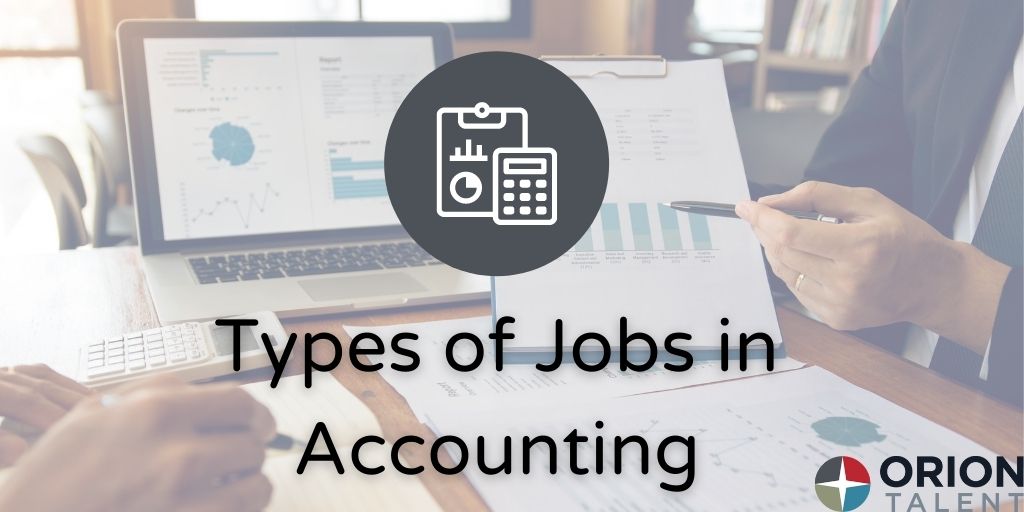
Accounting is ranked as one of the best business jobs in the U.S. News and World Reports’ annual list, and is a rapidly growing career path.
What are the Different Areas Within Accounting?
There are several different areas within accounting, to include financial accounting, management accounting, governmental accounting, public accounting, cost accounting, forensic accounting, tax accounting, and auditing.
The primary purpose of financial accounting is to track, record, and ultimately report on financial transactions by generating financial statements. Financial accounting always looks at past performance. Financial accounting provides an accurate look at business performance over a specified period of time in the form of financial statements.
Management accounting is a form of accounting used in businesses worldwide. Management accounting is designed to provide management with the information necessary to make high-level decisions for the business.
Governmental accounting is governed by the Governmental Accounting Standards Board (GASB), and has developed tracking and reporting standards for all levels of the government. Governmental entities use separate funds to keep track of income and expenditures.
Public accounting provides accounting services to a variety of clients, including service businesses, manufacturers, retailers, nonprofit organizations, governmental organizations, and individuals. Public accounting focuses on auditing, tax preparation, tax advisory, and consulting activity, including financial statement preparation and analysis.
Cost accounting looks at both fixed and variable costs that a business incurs such as materials, labor, overhead, maintenance, and production costs, ultimately providing management with important information such as break-even points.
Forensic accounting is used to investigate the financial activities of both individuals and businesses. It is frequently used by banks, police departments, attorneys, and businesses, examining financial transactions and later providing those findings in a completed report.
Tax accounting is regulated by the Internal Revenue Code (IRC), and is designed to ensure that all current tax rules and regulations are followed by businesses, nonprofit organizations, and individual taxpayers.
Auditing is designed to provide an independent analysis of that financial activity to ensure that a business is recording transactions following the acceptable rules and standards that apply.
What are the Most Popular Jobs in Accounting?
The most popular jobs in accounting can be split into three categories: Executive, Mid-level/Middle Management, and Speciality roles.
Executive Positions
Corporate Controller - Corporate Controllers supervise all accounting and financial functions at companies. They establish and implement financial policies, perform financial risk assessments, and prepare annual budgets and forecasts.
Chief Accounting Officer - A Chief Accounting Officer is the operations manager in charge of accounting for an organization. CAOs are responsible for overseeing all accounting functions, making sure reporting and bookkeeping is accurate and in compliance with federal regulations laid out by the Securities and Exchange Commission.
CFO - CFOs refer to a senior executive responsible for managing the financial actions of a company. The CFO’s duties include tracking cash flow and financial planning as well as analyzing the company’s financial strengths and weaknesses and proposing corrective actions.
Vice President of Accounting - The Vice President of Accounting serves as a financial advisor to the CEO and executive team for strategic planning purposes. They lead and manage the budgeting process and oversee all sides of accounting operations, including payables, receivables, payroll, and tax preparation.
Vice President of Finance - The Vice President of Finance is responsible for processing the financial activities of an organization to maximize a company's profits and plan for its growth. The role includes analyzing data and advising top executives on ways to use that information to make strategic decisions about the organization’s future.
Chief Risk Officer - The Chief Risk Officer is responsible for all risk management strategies and operations, as well as supervising the organization’s risk mitigation and identification procedures.
Tax Director - Tax Directors create and implement a strategic tax plan for a company. Job duties include preparing and filing tax documents and returns, including for payroll and income tax, writing detailed tax reports, and addressing any tax errors or issues that arise.
Chief Audit Executive - The Chief Audit Executive is ultimately responsible for the performance of the audit activity. The CAE is obligated to the audit committee to lead the internal audit activity in accomplishing internal audit’s goals.
Vice President - Financial Planning & Analysis (FP&A) - The Vice President - Financial Planning & Analysis (FP&A) leads company-wide processes including annual operating plan and long range planning, as well as oversees the monthly forecasting process.
Treasurer - A Treasurer is responsible for tracking, maintaining, and overseeing the daily movement of money in and out of a business’ banking accounts. In this position, your job duties are to keep track of multiple accounts associated with the business, and you also make any payments due to other parties.
Accounting Director - The Accounting Director typically provides consultant-level services to an organization's controllers and finance personnel. Common job duties include reviewing and analyzing finances, ensuring compliance with regulations and refining reporting documentation.
Senior Director, Accounting - The Senior Director, Accounting appraises the organization’s financial position and issues periodic financial and operating reports. They prepare all financial reports for the annual report.
Mid-level/Middle Management Positions
Accounting Manager - Accounting Managers oversee preparation of business activity reports, financial forecasts, and annual budgets. They oversee the production of periodic financial reports and ensure that the reported results comply with generally accepted accounting principles or financial reporting standards.
Senior Manager, Accounting - The responsibilities of a Senior Manager, Accounting revolve around preparing financial reports and presentations, assessing the performance of the workforce, participating in audits, managing schedules and guidelines, and devising strategies to improve systems and services.
Accounting Supervisor - The Accounting Supervisor oversees accounting activities, including accounts receivable and cash receipts, accounts payable, cash disbursements, and month-end accounting close activities. The role maintains the general ledger, prepares for the year-end audit, and prepares for timely and accurate financial reporting.
Senior Accountant - The Senior Accountant’s responsibilities include preparing financial reports, performing account reconciliations, maintaining the general ledger, preparing tax returns, assisting with audit preparations, and performing other accounting duties as assigned.
Staff Accountant - A Staff Accountant is responsible for maintaining financial records at a business, usually as part of a team. Their duties include confirming compliance with IRS rules, reconciling bank statements and balancing the ledger for regular reports.
Manager/Director - Data Analytics - Manager/Director - Data Analytics provide direction for a team of data analysts. They also build that team, making hiring decisions and deciding where each analyst’s skills will prove most productive for the organization. They oversee the work of an analytics department, ensuring its accuracy.
Manager/Director - Strategic Planning - The Manager/Director - Strategic Planning directs and oversees an organization’s strategic and long-range goal planning function. They are responsible for overseeing organizational reviews, communicating results to top management, and developing strategies based on organizational reviews.
Specialty Positions
Corporate Accountant - A Corporate Accountant is responsible for keeping track of a company’s finances, preparing financial reports and guiding executives in making strategic decisions based on current and forecasted finances. They assess how the company is doing financially and make sure the organization is complying with all federal and state regulations.
Budget Analyst - Budget Analysts prepare budget reports and monitor spending. Budget Analysts help public and private organizations plan their finances. They prepare budget reports and monitor organizational spending.
Certified Public Accountant - Certified Public Accountants analyze financial records to prepare tax returns, create budget reports, and conduct audits for their clients. These accountants ensure that financial records comply with federal, state, and local laws and regulations.
Forensic Accountant - Forensic Accountants compile financial evidence, develop computer applications to manage the information collected, and communicate their findings in the form of reports or presentations. Along with testifying in court, a Forensic Accountant may be asked to prepare visual aids to support trial evidence.
Auditor - Auditors are responsible for tracking the cash flow and accounts of companies to ensure that they are being recorded and processed correctly, that assets are protected through appropriate control measures, and that financial records meet legal standards.
Management Accountant - Management Accountants work for public companies, private businesses, and government agencies. Their duties include recording and crunching numbers, helping to choose and manage company investments, risk management, budgeting, planning, strategizing, and decision making.
Cost Accountant - Cost Accountants help businesses by overseeing and analyzing cost expenditures and purchases within the organization. They review services and goods, record data, and make recommendations about cost-efficient and financially feasible cost options.
Government Accountant - Government Accountants manage public funds, investigate white-collar crime, perform financial statement audits for government agencies and conduct research on emerging accounting issues.
Project Accountant - Project Accountants are financial specialists who review project budgets. They report to accounting supervisors and provide pre-billing information for project managers to review. They are also required to provide cost estimates and prepare invoices.
Investment Accountant - An Investment Accountant works in the financial industry for a brokerage or asset management company. They also help reconcile the books and manage debt investments, such as the purchase of bonds.
What Types of Careers in Accounting are Growing the Fastest?
Accounting is one of the top departments in an organization. They’re the professionals who set the pace financially for a company or organization and determine if the organization is meeting their financial goals. Financial Analysts, Auditors, Staff Accountants, Controllers, and Bookkeepers are all expected to see an increase in positions within the next several years.
Conclusion
The career outlook for accountants continues to grow year after year. Accounting jobs are projected to grow by 6% through 2028, according to the U.S. Bureau of Labor Statistics.
In addition, the median annual wage for an accountant is well above the national median average for most occupations.
If you possess analytical and critical thinking skills, have excellent oral and written communication, and are organized and can handle time management, a career in accounting is a good fit.
Ready to get started with a career in the Accounting industry? Search jobs in Finance and Accounting or reach out to our Finance industry recruiting experts, Yasmine O’Brien, Daniel Frank, and Jackie Deace.
Archives
- March 2024
- February 2024
- January 2024
- December 2023
- November 2023
- October 2023
- September 2023
- August 2023
- July 2023
- June 2023
- May 2023
- April 2023
- March 2023
- February 2023
- January 2023
- December 2022
- November 2022
- October 2022
- September 2022
- August 2022
- July 2022
- June 2022
- May 2022
- April 2022
- March 2022
- February 2022
- January 2022
- December 2021
- November 2021
- October 2021
- September 2021
- August 2021
- July 2021
- June 2021
- May 2021
- April 2021
- March 2021
- February 2021
- January 2021
- December 2020
- November 2020
- October 2020
- September 2020
- August 2020
- July 2020
- June 2020
- May 2020
- April 2020
- March 2020
- February 2020
- January 2020
- December 2019
- November 2019
- October 2019
- September 2019
- August 2019
- July 2019
- June 2019
- May 2019
- April 2019
- March 2019
- February 2019
- January 2019
- December 2018
- November 2018
- October 2018
- September 2018
- August 2018
- July 2018
- June 2018
- May 2018
- April 2018
- March 2018
- February 2018
- January 2018
- December 2017
- November 2017
- October 2017
- September 2017
- August 2017
- July 2017
- June 2017
- May 2017
- March 2017
- February 2017
- January 2017
 RSS Feed
RSS Feed
Subscribe to Orion's Blog
Featured Blogs




.jpg)



















